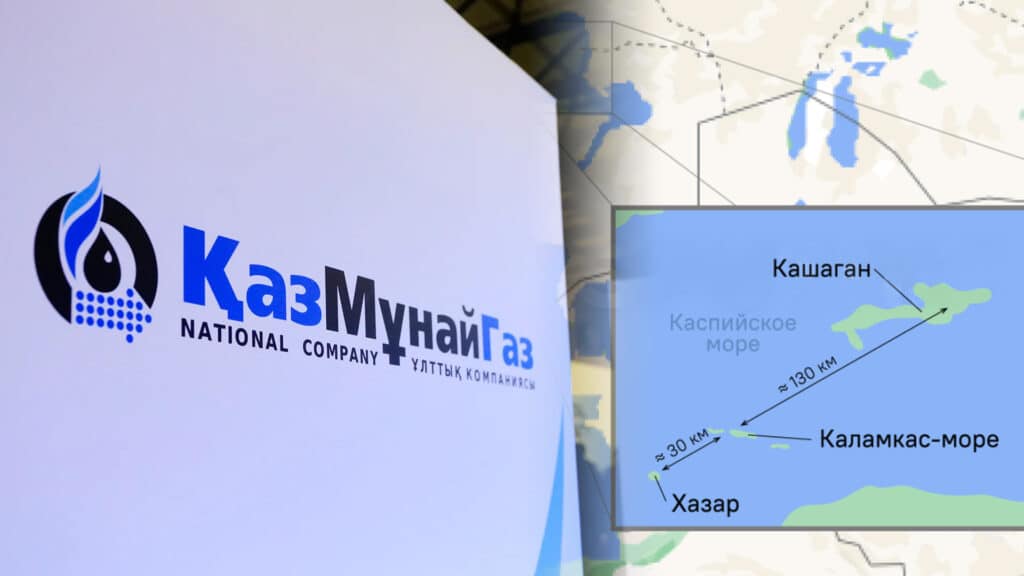KazMunayGas explains why cooperation with Russian Lukoil is strategically important

According to Deputy Chairman of the Management Board of KazMunayGas (KMG) Kuanysh Kudaibergenov, Kazakhstan has managed to re-launch the Kalamkas Sea/Khazar project thanks to a strategic partnership with Russian Lukoil.
«After long-term negotiations, KMG has managed to engage Lukoil as a strategic partner, as this company had already implemented similar projects in the Russian section of the Caspian Sea. It’s worth noting that the fact we have a strategic partner that possesses necessary technologies related to exploring offshore oil fields was the key factor that helped us re-launch the project. Otherwise, it would lay on a shelf waiting for an investor,» the press service of KMG reported, citing the official.
Previously, Kalamkas Sea and Khazar were controlled by different operators. Thus, Kalamkas Sea was part of the North Caspian Operating Consortium (NCOC), which was responsible for oil production at Kashagan. On the other hand, Caspi Meruerty Operation Company (CMOC by Shell and Oman Oil) was developing the Khazar project. As Kudaibergenov noted, the implementation of these projects fell behind schedule due to various factors, including a lack of economic efficiency. As a result, both operating companies refused to proceed with investments in these oil fields and gave them back to the government.
Given the geographic proximity and geological similarity of these oil fields, Kazakhstan’s government has decided to combine them into one subsoil contract. The project is considered technically complex and requires around $6.5 billion in investments.
For the first time, Kazakhstan is going to produce oil with the help of offshore oil rigs that might be built at Kazakhstani shipyards in the Mangystau region. These facilities have stayed idle after the construction of Kashagan’s oil facilities was completed. As a result, this project will boost business activities in the region and create new jobs. This is why the emergence of a new strategic partner that is ready to invest in such an expensive project is definitely a positive factor, according to Kudaibergenov.
«Don’t forget that our company has a 50% stake in the project, and all decisions must be taken by the joint venture participants on a parity basis. The project’s executive body also consists of representatives from our companies as it is formed on a parity basis as well. In other words, claims of some media outlets that Kazakhstan has lost control over the project are groundless,» Kudaibergenov stated.
Lukoil, one of the biggest oil companies in Russia, has paid $200 million to KazMunayGas (KMG) for a 50% stake in the Kalamkas Sea project. Under the deal, the two companies will produce oil in three oil fields: Kalamkas Sea, Khazar and Auezov. The deal was reached in February 2023 and closed in September. According to Kommersant, a Russian business media outlet, KMG disclosed the contract value in its annual report.
Lukoil paid $50 million for a 50% stake on September 21, 2023, and may pay an additional $100 million as a reward if «certain requirements are met.»
«KMG has considered an additional reward as a financial asset measured at fair value through gain and loss at $29 million on the side of other financial assets in its consolidated financial statement,» KMG said in its report.
Interestingly, KMG invested almost the same amount of money in its former subsidiary: $200 million. According to the financial statement, this money is now considered an investment in the joint venture on a quota-share basis.
From January 1 to September 11, 2023, Kalamkas-Khazar Operating, an operator of the Kalamkas Sea project, reported $521,288 in losses, $15,661 in revenue, and $241,627 in administrative costs. Its assets and liabilities are estimated at $45.8 million and $13.4 million, respectively.
In September 2021, President Kassym-Jomart Tokayev announced the start of exploration at the Kalamkas Sea and Khazar oil fields in conjunction with Russian Lukoil. At the initial stage, the volume of investments into the projects was assessed at $5 billion. The announcement was made against the backdrop of oil depletion at the current fields in Kazakhstan and the expected decline in oil output by 2030.
Kalamkas-Khazar Operating was established to supervise the exploration of the Kalamkas Sea, Khazar and Auezov oil fields. In February 2023, KMG and the Ministry of Energy signed an improved model contract on oil production in this field. Under the deal, the investor was supposed to pay a $32 million subscription bonus, raise $6 billion in direct investments and create about 2,000 new jobs.

